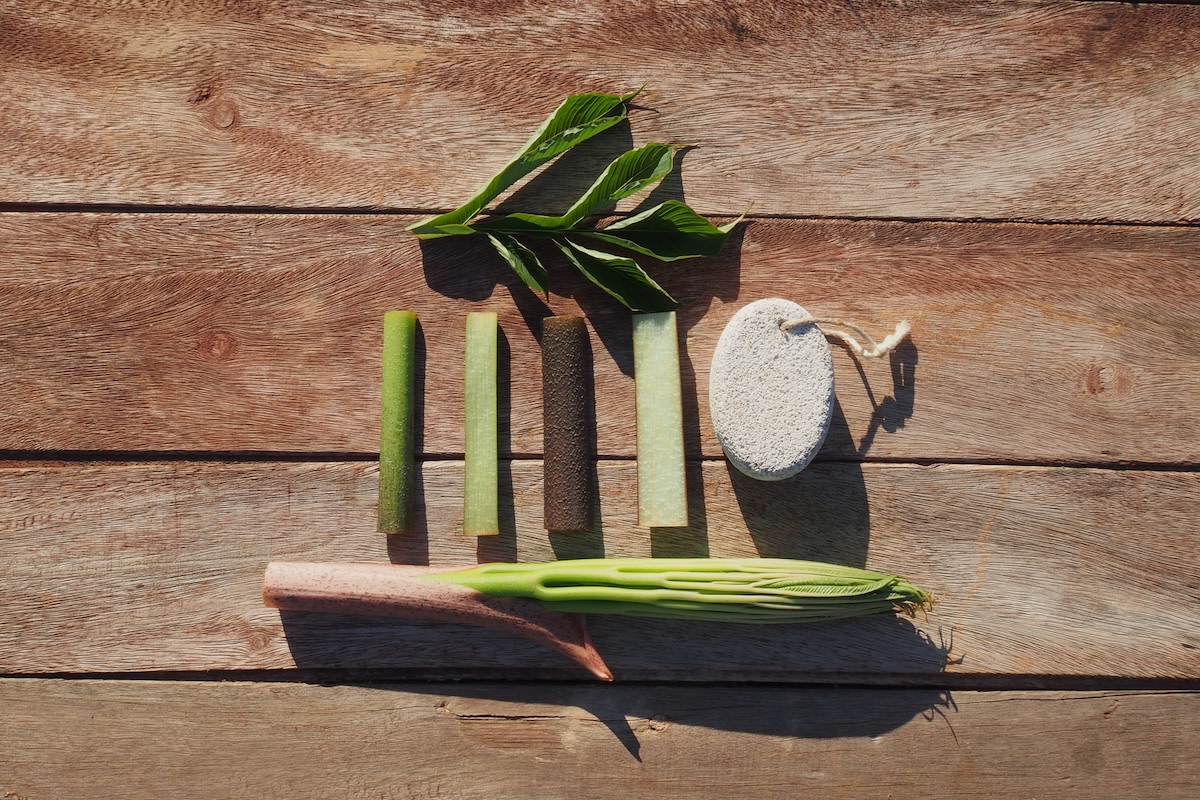What Is Konjac? Potential Health Benefits and Risk Factors
Written by MasterClass
Last updated: Dec 21, 2021 • 3 min read
The konjac plant is a subtropical vegetable known for its low-carb food products and health benefits. Learn about how you can incorporate konjac into your diet.
Learn From the Best
What Is Konjac?
Konjac (Amorphophallus konjac) is a root vegetable native to Yunnan, China, cultivated in tropical regions throughout Southeast Asia. The konjac plant’s stem grows up to six feet tall and branches out into large leaves and flowers; however, the part that producers harvest is the starchy root base, sometimes incorrectly called a corm. The underground tuber is the edible portion of the plant, used to make translucent, gluten-free konjac noodles known as shirataki and a yam-less Japanese “yam cake” called konnyaku, popular in both Korea and Japan.
Chefs and home cooks commonly use konjac as a thickening agent and substitute for gelatin.
What Nutrients Does Konjac Contain?
Konjac products are not a rich source of vitamins or minerals, but they are low in carbohydrates and high in glucomannan, a soluble dietary fiber sold as a supplement.
Glucomannan can easily absorb water, so the dietary fiber may help absorb liquids in the gut, bulking up your stool and giving you a feeling of fullness.
3 Potential Health Benefits of Konjac
Adding fiber-rich foods to your diet may help treat and prevent different diseases. However, it’s important to consume high-fiber foods like konjac food products in moderation, as too much fiber can cause side effects like bloating, nausea, flatulence, and diarrhea.
- 1. Lower blood glucose levels: Some people with diabetes use konjac or glucomannan supplements as part of their treatment plans. High glucose is one of the symptoms of Type 2 diabetes, and the soluble fiber in konjac purportedly helps the body regulate blood sugar levels.
- 2. Promote healthy digestion: A healthy diet, including fiber, assists with regular bowel movements and supports the digestive system. Adding konjac foods to your diet may help promote digestion and relieve constipation. However, like other foods that contain high amounts of fiber, overconsumption of konjac may cause diarrhea.
- 3. Treat skin conditions: Traditional Chinese medicine uses konjac for its wound-healing benefits to treat skin conditions from acne to allergic reactions. Konjac’s rough texture can also unclog pores by exfoliating the skin.
Which Type of Products Contain Konjac?
Konjac is a staple in Japanese cuisine, but you can also find it in non-food products.
- Food: Konjac is an ingredient in various food products, such as shirataki noodles, konjac jelly, and konjac flour. These ingredients are popular in traditional Japanese cuisine; some producers also market them as gluten-free replacements.
- Dietary supplements: You can buy glucomannan, a major component of konjac, as a dietary supplement. However, the Food and Drug Administration (FDA) does not regulate supplements, so there is no standard dosage. Consult a healthcare professional before adding supplements to your diet.
- Skincare: Konjac root is a popular cleansing tool in the skin-care industry. You can use a konjac sponge (made from the root) to gently cleanse and exfoliate the skin, removing dead skin cells. To apply, simply soak the sponge in warm water for ten minutes. Apply the wet sponge directly to your face, massaging the sponge in circular motions to fully cleanse the skin.
Risk Factors to Consider Before Consuming Konjac
Due to glucomannan’s ability to absorb water, konjac products or supplements can expand in your throat or digestive system and may pose a choking hazard or bowel obstruction. Make sure to consume konjac foods and supplements with plenty of water, ideally, as a small part of a larger, balanced meal like Japanese oden.
Young children and the elderly should avoid consuming konjac.
Healthy Questions
Functional foods are whole or fortified fare that can potentially provide health benefits when consumed as part of a regular diet. Since these foods have yet to be legally defined, consumers must research any claims related to nutritional value and consult an accredited nutritionist or dietician before incorporating new foods into their diets. This article is for educational and informational purposes only and is not a substitute for nutritional advice from a trained professional.
Learn More
Get the MasterClass Annual Membership for exclusive access to video lessons taught by the world’s best, including Joe Holder, Robin Arzón, Donna Farhi, Jon Kabat Zinn, and more.
